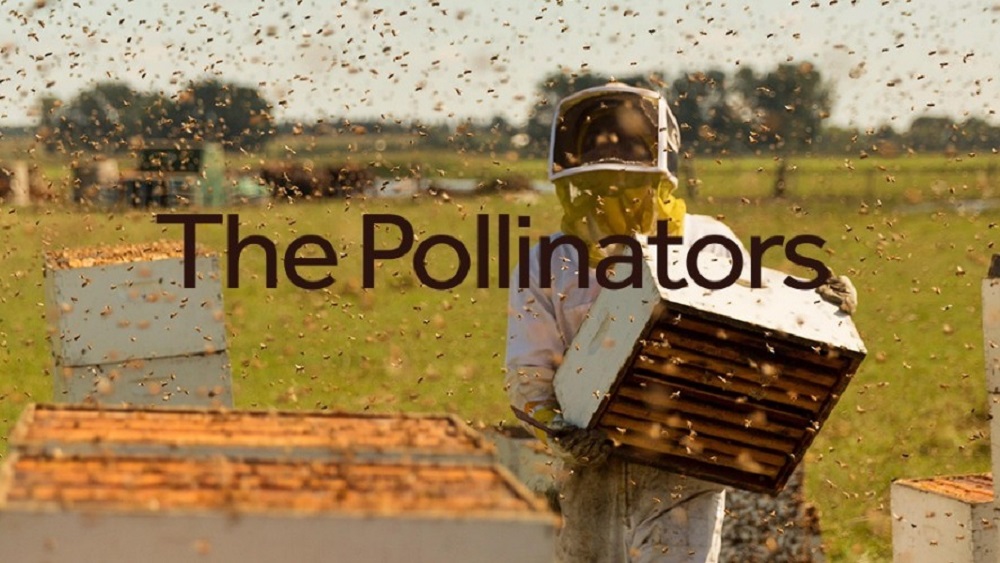Commercial honey bees are dying. The new documentary “The Pollinators”, directed by commercial beekeeper Peter Nelson, explores why these pollinators are dying off.
Crops such as cherries and blueberries are 90 percent dependant on commercial honey bee pollination. The $11 billion Californian almond industry relies entirely on honey bees (though, one could just not buy almond products). Every February, beekeepers transport 1.8 million honey bee hives to California’s Central Valle to pollinate the blooming almond trees.
Why Are Bees Dying?
These bees are experiencing “mass die-offs,” likely a result of pesticide or fungicide poisoning. In the U.S., preventative pest management involves spraying everything with pesticides.
Nelson told the Guardian that this is “kind of like taking an aspirin in the morning because you might have a headache in the afternoon.”
Instead of overusing pesticides, Nelson proposes integrated pest management.
A 2018 study published in the journal Environmental Science and Pollution Research found that these bee-deadly pesticides are unnecessary in most cases. For example, pests destroy only 1 percent of corn acres. Better agricultural management processes, such as not planting on recently converted pasture, could replace pesticides.
Brett Adee, a beekeeper featured in the documentary, is working to figure out what exactly is killing bees. Experts believe that transporting bees, invasive mites, the climate crisis, and monocultural habitats play a role in die-offs.
“If we put the same economic value on a honeybee as cattle, we wouldn’t have a pesticide investigator out there for these kind of losses,” said Adee. “We’d have the FBI out there.”
Why Pollinators Matter
According to the Food and Agriculture Organization (FAO) of the UN, pollinators are responsible for pollinating three out of every four crops that produce fruit or seeds for human consumption. Pollinators, including bees, hoverflies, and butterflies, support the production of 87 major food crops worldwide. Honey bees represent 14 percent of global pollination services.
These crops are not entirely dependent on commercially raised honey bees: the majority of pollinators, which include more than 20,000 species of bees, are wild. The FAO notes that pollinators are also important to safeguarding biodiversity.
Nelson explained that humans can help protect bees by supporting local farmers markets, advocating for an end to pesticide use on local roadsides, growing pollinator gardens, and not spraying lawns with pesticides. U.S. lawns, he added, “are essentially a giant monoculture.” Political action, such as urging for an end to the overuse of pesticides, is another way to help bees.
“The Pollinators” is available to stream now on iTunes.


